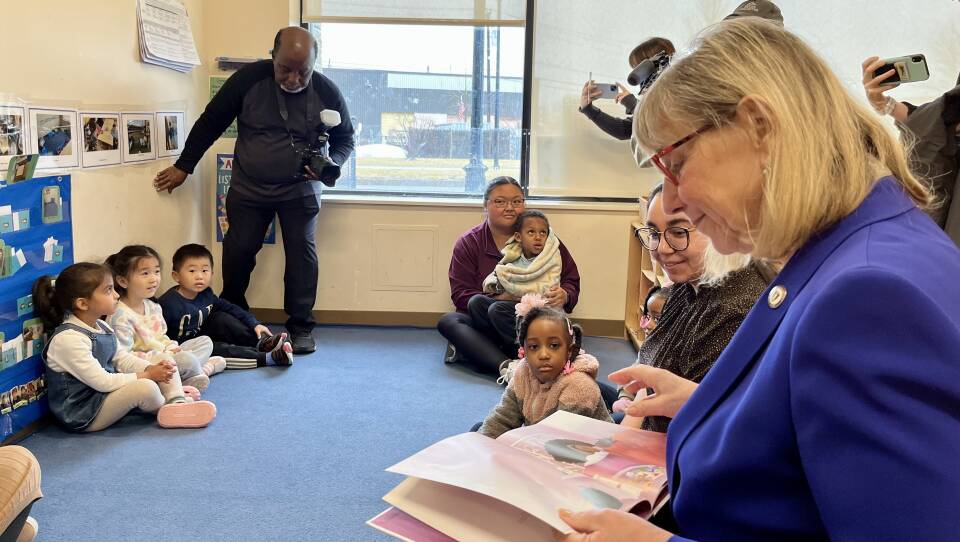Democrats in the Massachusetts Senate are hoping to use next year’s state budget to take a bite out of the high child care costs facing families across the state.
Following the House passing a $58 billion budget last month for the fiscal year that starts in July, the Senate Ways and Means Committee is set to release its own version of the spending plan on Tuesday.
That bill will feature an investment of nearly $1.58 billion dollars in early education and child care, according to a source familiar with the proposal. It also seeks to make more families eligible for state subsidies that lower the cost of care.
Right now, families must earn less than half of the state median income, or under $73,000 for a family of four, in order to qualify for a subsidy. The new Senate budget would raise that threshold to $124,000, or 85% of the median income.
Out-of-pocket child care costs would be capped at a maximum of 7% of family income for subsidy recipients under the Senate budget, and those fees would be eliminated for subsidy recipients who fall below the federal poverty level.
The cost limits and subsidy expansion are also included in a standalone bill the Senate unanimously passed earlier this year. By mirroring those proposals in the budget, Senate leaders are doubling down on their bid to get them passed into law.
They could find an ally in Gov. Maura Healey, who also recommended a subsidy expansion to 85% of the median income. Healey’s office has estimated that change would benefit 4,000 families.
The way child care costs in Massachusetts squeeze family budgets has drawn attention from Beacon Hill in recent years. According to the Economic Policy Institute, infant care in Massachusetts costs an average of $20,913 annually and care for a 4-year-old costs $15,095.
The institute ranks Massachusetts second in the country for highest infant care costs, after only Washington, D.C.
Senate President Karen Spilka has previously said the upcoming budget will finance a pilot program offering matching funds to businesses that create new child care seats for their workers, and that it will make permanent a state grant program that supports child care providers.
The Commonwealth Cares for Children, or C3, grants originated with federal dollars during the COVID-19 pandemic. After that aid ended, Massachusetts officials have kept the grants running through the state budget.
Amy O'Leary, executive director of Strategies for Children, said the C3 grants “really provided a lifeline” for child care programs at the height of the pandemic, helping them stay open and maintain their staff. As the funding continued, she said it's given programs “breathing room in their budget to think about how to support staff.”
The budget the House passed in April and the Senate proposal coming out Tuesday each include measures aimed at helping early educators access child care for their own kids, although the specifics differ.
O'Leary said directors of child care programs have been raising this issue because they can have a hard time hiring and recruiting staff who also need to navigate their own challenges finding affordable care.
“That's not the silver bullet that's going to fix the workforce crisis, but it sends a message about how important this work is,” she told GBH News.
Senators plan to start their budget debate on Tuesday, May 21. Once they pass the bill, it will move into closed-door talks with the House, and a team of six lawmakers will reconcile spending and policy differences in order to send a final bill to Healey.
This year, that will mean agreeing on an approach to child care funding. The House budget includes around $1.5 billion for early education and care, and it would also make the C3 grants to child care providers permanent.
The House plan draws some of the money for those grants from new revenue associated with letting the state Lottery make sales online, an idea the Senate has traditionally resisted.
Senate Ways and Means Chairman Michael Rodrigues said last month that online Lottery is “not a priority of us in the Senate.”
Representatives are also looking to cap how much money for-profit, multi-state, or franchised child care providers can receive in those grants. House leaders have pointed to Bright Horizons and KinderCare as examples of chains that would be subject to the cap.





